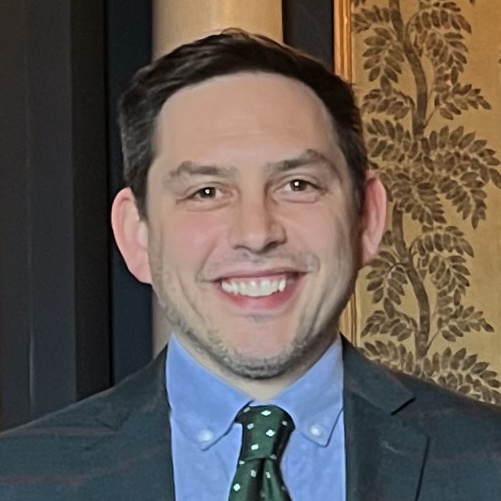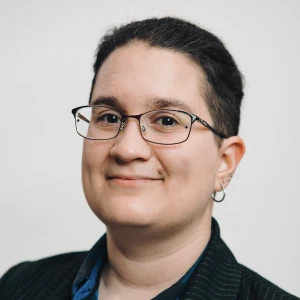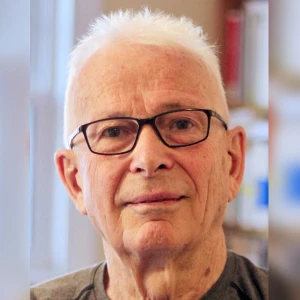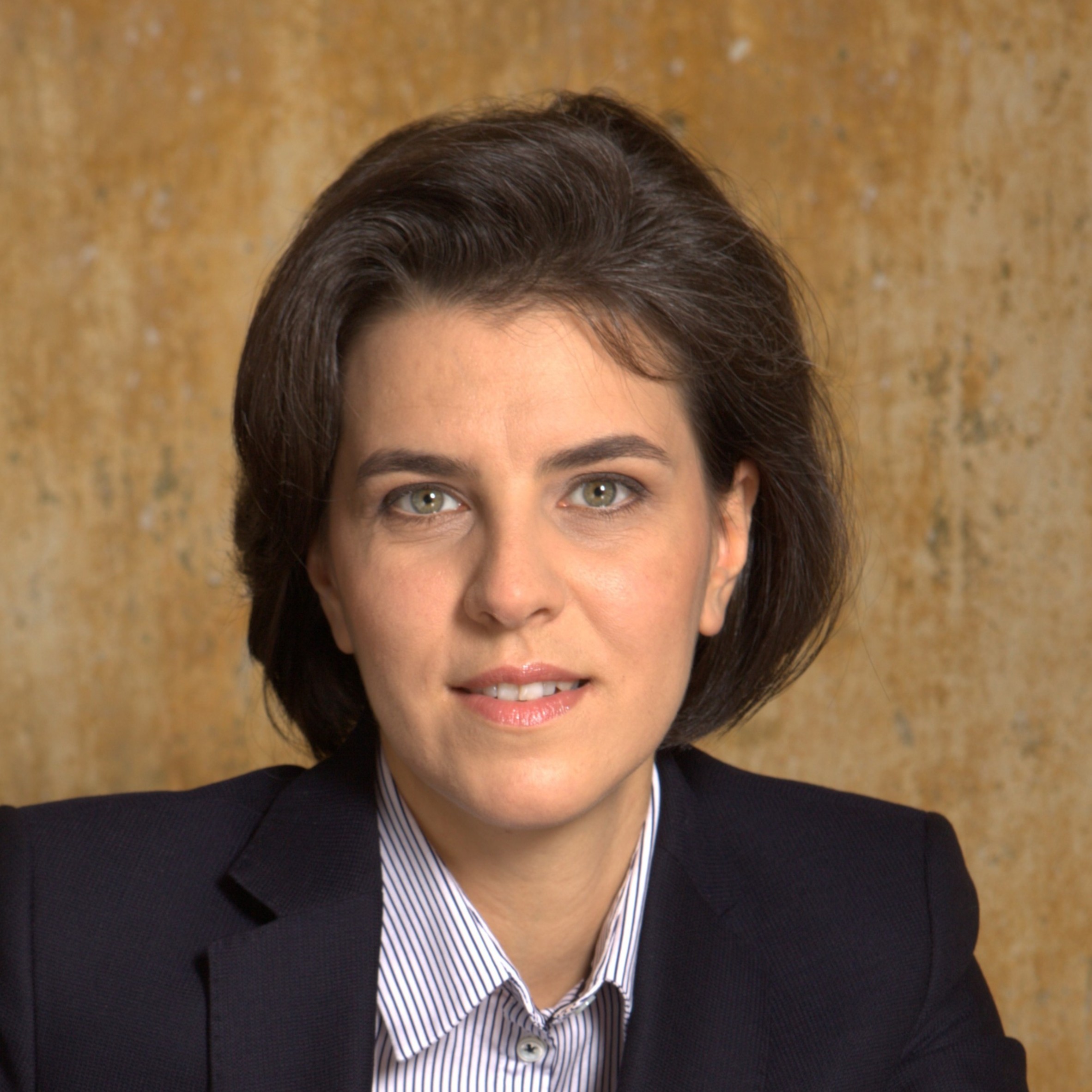Members
Meet our community
Current Members
Steering Committee
Director

Eric Racine
Dr. Racine is a renowned researcher in bioethics, specializing in neuroethics and pragmatic ethics. Author of Pragmatic Neuroethics: Improving Treatment and Understanding of the Mind-Brain, he focuses on the lived experience of ethically problematic situations, resolved through deliberative processes. He is the Director of the Pragmatic Health Ethics Research Unit and a Senior Research Professor at IRCM and the University of Montreal. Dr. Racine is also a member of the Canadian Academy of Health Sciences and has received several honorary distinctions.
/

Caroline Favron-Godbout
Caroline is a PhD candidate in bioethics at the Université de Montréal. She is conducting her doctoral research under the supervision of Dr. Eric Racine, at the Pragmatic Health Ethics Research Unit. Her undergraduate studies were in biological sciences and neurosciences, and she completed a professional master’s in bioethics. Her research aims to co-develop, with key stakeholders, a guide for reflection and discussion on medical assistance in dying in the context of mental disorders. This project is financed by the Fonds de recherche du Québec and the RQSHA. Caroline aspires to place ethics at the heart of healthcare and the healthcare system, at the heart of research, but also at the heart of people’s everyday lives. Her vision is to make ethics accessible and meaningful to everyone.
In my view, adopting a living ethics stance is a promising avenue for making ethics accessible and meaningful to all. For me, a living ethics stance goes beyond respecting the diversity of experiences and perspectives: it seeks to welcome it. It encourages an open sharing of perspectives and the courage to engage in this sharing with curiosity, humility, and authenticity. A posture of living ethics—engaging, collaborative, rooted in complex realities, adaptable to diverse contexts, and open to dialogue—inspires me every day.
/

Sylvain Faye
/

Arthur Filleul
Arthur Filleul is a French physiotherapist and doctoral student in Bioethics at the School of Public Health at the University of Montreal. His doctoral project is based at the Laboratory for Ethics in Rehabilitation (LEViER) and aims to explore the ethical issues related to the allocation of limited resources in order to co-construct, co-develop, and co-evaluate concrete and sustainable solutions. He is also co-founder of the “Philosophy & Physiotherapy” interest group within the French Physiotherapy Society.
For me, living ethics is a stance that acknowledges the ethical dimension of everyday life, not merely in rare, dramatic dilemmas or pivotal moments.
/

Cynthia Forlini
Cynthia Forlini is an adjunct Senior Lecturer in Health Ethics and Professionalism in the School of Medicine (Faculty of Health) at Deakin University. Her research explores the neuroethical issues that arise as we redefine the boundaries between treatment, maintenance, and enhancement of cognitive performance. She has examined these issues conceptually and empirically as they relate to the use of neurotechnology (e.g. neuropharmaceuticals and non-invasive brain stimulation) in different contexts such as competitive academic environments, research, healthy cognitive ageing, and dementia prevention. Cynthia has been a member of research ethics committees for 15 years in both Australia and Canada.
Studying and actioning living ethics is an opportunity to integrate and, most importantly, enact social values of diversity, equity and inclusion as we address new and emerging issues in health and society. The living ethics stance will be increasingly indispensable for individual and community decisions as well as policy-making in commercial environments and democracies.
/

Giulia Inguaggiato
Giulia Inguaggiato is a philosopher with a background in medical ethics and research integrity. She is Assistant Professor at the department of Ethics Law and Humanities, Amsterdam University Medical Centers (Amsterdam UMC). Her research focus lies in exploring the intersection between philosophical ethical reflection and the practice of moral reasoning and in ethics education, health care and research.
Living ethics is a way of understanding what ethics is – an approach that recognizes living as an inherently moral endeavour. It serves to remind us of the intersubjective nature of ethics and encourages us to make ethics the object of a democratic and inclusive process of inquiry.
/

Suzanne Metselaar
Suzanne Metselaar is an ethicist and senior researcher at Amsterdam University Medical Centers. She obtained her PhD degree in Philosophy at the VU University of Amsterdam. Presently, she leads the research program Ethics of Palliative Care & End of Life at the Department of Ethics, Law and Humanities. Especially, she focuses on providing, developing and studying clinical ethics support instruments that help professionals to navigate their moral challenges themselves, in order to improve the quality of patient care and to promote their own (moral) resilience. She also publishes on clinical ethics theory and methodology.
I envision Living Ethics as an approach to bioethics that fosters processes of joint moral learning among bioethicists and diverse groups within society, so as to transcend beyond the distinction between academic bioethics expertise and the experiential expertise of those that live the realities in which moral challenges arise.
/

Félix Pageau
Dr. Félix Pageau (MD, M.A. philosophy, internist-geriatrician, ethicist, researcher) completed a master’s degree in philosophy in 2019. He is also a full researcher at the Center of Excellence in Aging in Quebec and at VITAM – Center for Research in sustainable health. Doctor Pageau is responsible for the Ethics and Health Axis of the Institute of Applied Ethics (IDÉA) at Laval University. He has been working as a geriatrician in Quebec City since 2021. His areas of study are end of life, futility, dignity, autonomy, medical assistance in dying, euthanasia, consent to care and robotics in geriatrics.
Living ethics encompasses various research methods aimed at adapting knowledge to evolving ethical situations facing humanity. Whether it is climate change, artificial intelligence, assisted reproductive technologies, or other contemporary challenges, we must adapt to flourish amid these ethical dilemmas. As a geriatrician, I strive to promote human flourishing until the end of life, even amidst dementia or other geriatric syndromes affecting individuals. This field explores how we can apply ethical principles to real-world scenarios, considering the complexities of life. It recognizes that society and technology advance pose new ethical questions.
/

Manisha Pahwa
Manisha Pahwa is Postdoctoral Fellow at McGill University and first-ranked recipient of the CIHR Research Excellence, Diversity, and Independence Early Career Transition Award. Dr. Pahwa is interested in ethical frameworks that guide health policy in Canada. Her research asks what and whose values should author health policy to help create a fairer, healthier society. Dr. Pahwa approaches this question through empirical and normative bioethics research. With South Asian community partners, Dr. Pahwa is currently exploring values related to risk-stratified breast cancer screening, intending for this research to help inform fairer policies that improve breast cancer outcomes among South Asian people.
For Dr. Pahwa, ‘living ethics’ is the symbiotic relationship between lived experiences and how to live a good life. While some aspects of how to live a good life are consistent through time and space, such as having respect for all living beings, through lived experiences we can more fully understand the meaning of a good life and potentially expand and enrich this meaning as we go along. Living ethics offers a way to conceptualize this dynamic.
/

Gabriel Saso-Baudaux
Gabriel is a PhD student in practical philosophy at the University of Sherbrooke. His research interests cover the philosophy of science, political philosophy, social epistemology and the field of Science, Technology, Society (STS). He is particularly interested in the relationship between science and politics, which he studies in his PhD on scientific advice. More broadly, he is interested in the place of expertise in democratic societies, both scientific and lay expertise.
In the living ethics stance, I see a promising tool to help us think about the place of expertise and experts-based decision-making in democratic societies. In a time when the authority of experts is being challenged – sometimes, justifiably so, but other times, less so – I also believe it can help us rethink what public trust in science should mean, and more effectively foster this trust. I also see living ethics as a lever for the rejuvenation of our struggling democracies, an issue which can only be resolved with both deep and widespread transformations to our societies.
Regular Members

Robert Beets
Robert Beets is a writer and science communicator interested in the exploring novel concepts and pragmatic strategies at the intersection of science and democracy. His interest in living ethics overlaps with his focus on public discourse, human flourishing, and his work to develop a set of integral rights. Robert is the lead contributor of a democratic project called Modern Populace, and he is the Executive Director of the International Neuroethic Society.
The ethics of life and the evolving set of practices to live harmoniously.

Daniel Buchman
Daniel Buchman, MSW, PhD is a bioethicist and scientist at the Centre for Addiction and Mental Health where he directs the Everyday Ethics Lab. He is also an associate professor in the Dalla Lana School of Public Health at the University of Toronto. Dr. Buchman’s general research area explores ethical issues at the intersection of clinical practice and population health. His primary areas of research interest include ethical issues related to mental health, substance use, and chronic pain. Daniel’s leading research, scholarship, and education in bioethics draws upon a transdisciplinary toolkit of theoretical as well as empirical approaches with themes related to stigma, social justice, identity, and compassion featuring prominently in his work. He has a longstanding teaching interest in empirical approaches to bioethics, and is a widely sought-after mentor and speaker.

Ariel Cascio
Ariel Cascio, Ph.D. earned a Ph.D. in anthropology at Case Western Reserve University and undertook training in pragmatic health ethics at the Institut de recherches cliniques de Montréal. Their research focuses on social and ethical issues around autism, cognitive difference and disability, and neurodiversity in Europe and North America, with a particular focus on Italy. This research has been funded, in part, by the U.S.-Italy Binational Fulbright Commission, the Social Sciences and Humanities Research Council of Canada Banting Postdoctoral Fellowship Program, and the Wenner-Gren Foundation for Anthropological Research.
I am most excited about living ethics for its focus on inclusively engaging everyone as stakeholders in ethical questions, and its focus on the way we individually and collectively “live” ethics every day. Living ethics can be an inviting way to work together on identifying and exploring ethics topics. It can make ethics less scary, more accessible, more democratic, and therefore ultimately more useful.

Bénédicte D’Anjou
Bénédicte D’Anjou is pursuing a Ph.D. in Information Studies at McGill University. She holds a Graduate Certificate in Information and Knowledge Management (McGill) and both an MA and BA in Philosophy (UQAM). Her work focuses on ethical issues related to the transmission and production of information and knowledge. Concurrently, Bénédicte holds the position of research coordinator at the Pragmatic Health Ethics Research Unit, where she has coordinated a living lab in ethics (É-LABO) and conducted associated pilot projects.

Jayashree Dasgupta
Jayashree Dasgupta is an Adjunct Professor in Healthcare Management at Chitkara University, Punjab, India and Co-Founder of Samvedna Care, India. Her research interests include development of mental health and dementia care services in resource-limited settings and neuroethics, emphasizing the incorporation of low and middle income context perspectives in global research. She also co-leads the creative brain network in India which promotes brain health through creativity and multidisciplinary collaborations. She is also a Global Atlantic fellow for Equity in Brain Health.
The value of a living ethics stance, particularly for an ethics researcher in a low and middle-income setting, lies in its dynamic, practical approach to ethical inquiry. It fosters a participatory, user-oriented methodology, making ethics more accessible and relevant to diverse contexts, and which is responsive to local needs.

Hubert Doucet
Hubert Doucet is an honorary professor of bioethics at the Institute of religious studies, University of Montreal. He holds a PhD in religious studies from the Université Marc Bloch Strasbourg. His research has sought to promote dialogue within the field of bioethics, whether between health professionals and patients, researchers and research subjects, members of multidisciplinary teams, citizens and those promoting technological development. His work has been recognized by several awards, notably the Abyann Lynch Medal of the Royal Society of Canada and the Lifetime Achievement Award of the Canadian Society of bioethics.
Bioethics was a living ethic that I discovered 40 years ago, which became my field of commitment. It was so original compared with the other ethics that were current at the time! Since then, I’ve always tried to find places where this original dynamic was practised. I’m delighted with the current approach; it reconnects with the original spirit of bioethics, while taking its own forms in response to the environments of a constantly changing world.

Md Shaikh Farid
Md Shaikh Farid is a Clinical Ethics Fellow at Unity Health Toronto and the University of Toronto, and a Visiting Research Scholar at the Toronto School of Theology. He is also a Professor in the Department of World Religions and Culture at the University of Dhaka, Bangladesh. His research interests include bioethics in Muslim contexts, decolonizing clinical ethics education, organ donation and transplantation ethics, and Catholic education in postcolonial South Asia. Dr. Farid has published widely on religion, ethics, and health policy.
“Living ethics” means embodied, responsive, and evolving ethical practice grounded in local contexts, relationships, and lived realities.

Dessislava Fessenko
Dessislava Fessenko, LLM, MScBE, CIPP/E, is a lawyer and a bioethicist. Her research explores the integration of ethics into the regulation and governance of data and artificial intelligence, as well as fairness and privacy in machine learning. In her applied work, she advises on issues at the intersection of ethics, law, and governance of data and artificial intelligence. Dessislava serves as an external advisor to the European Research Executive Agency, the European Union Artificial Intelligence Office, and the European Data Protection Board. She also teaches ethics of Big Data and artificial intelligence at the University of Cambridge Professional and Continuing Education. She holds an advanced LLM in European Union law from the University of Amsterdam, postgraduate diplomas in law and economics from King’s College London and Queen Mary University of London, as well a Master of Science in Bioethics from Harvard Medical School.
To me, living ethics means interpreting and apply ethics by centering the individuals’ and communities’ lived experiences and relations while recognizing the limitations of moral principles to fully capture the richness and dynamism of our moral lives and to fully support our pursuits of self-development and realization.

Isabelle Ganache
Isabelle is the Director of the Bureau Méthodologies et éthique at the Institut national d’excellence en santé et en services sociaux (INESSS) and Clinical Associate Professor in the bioethics programs at the Université de Montréal. Since 2007, she has worked to integrate ethical considerations by developing a vision of ethics linked to citizen and stakeholder participation at the Agence d’évaluation des technologies et des modes d’interventions en santé and the Health and Welfare Commissioner. She also served as a member and chair of research ethics committees from 2002 to 2014.
In my opinion, ethics is useful and relevant when it is alive, meaning when it is rooted in people’s real-life experience, when it helps them to make decisions in the face of problems they encounter in their personal lives or decisions of a public nature. Ethical theories must be placed at the heart of our tensions and challenges, so that, together, we can decide how to do things in order to do them well.

Anne-Sophie Guernon
Anne-Sophie is a PhD candidate in Anthropology at McGill University. She holds an MSc in Medical Anthropology from the University of Oxford. Her interdisciplinary doctoral research on gestational diabetes explores diagnostic cultures, biomedical systems, medical decision-making, and the pathologization of the female body. Her other research interests include diabetes, chronic illness, metabolism, public health, bioethics, and the use of AI in medicine.

Karen Herrera-Ferrá
Dr. Karen Herrera-Ferrá is a physician with a master’s degree in clinical psychology, a PhD in Bioethics and a Posdoctorate in Neuroethics. She has been dedicated to clinical mental health in Mexico for almost 30 years. She is an independent researcher and academic and international advisor in bioethics and neuroethics. She is founder and former president of the Mexican Association of Neuroethics and founding member of the Interdisciplinary Bioethics Seminar. She is a member of the Council of Experts of the National Alliance of Artificial Intelligence (ANIA), and of the Group of Neurorights in the Senate of Mexico. Dr. Herrera-Ferrá is a former member of the Board of Directors of the International Neuroethics Society.
Can you imagine experiencing the lives and moral dilemmas of others in order to help them and learn ethics from them? Can you imagine a practical, understandable, applicable, available, and accessible ethics that makes sense to anyone in any context? Living ethics envisions them through close interaction and, therefore, learning and responding with empathy, respect, and responsibility to the experience of each human being and under his or her own moral compass.

Matthew Hunt
Matthew Hunt is a professor at McGill University’s School of Physical and Occupational Therapy, and a researcher at the Centre for Research on Ethics and the Centre for Interdisciplinary Research in Rehabilitation. He leads the ethics axis of the Quebec Population Health Research Network. Matthew conducts health ethics and equity research focusing on two main areas of inquiry: rehabilitation care and institutions, and humanitarian action. Current projects include the LEVIER, a recently launched living laboratory situated in a rehabilitation hospital in Montreal that adopts a living ethics approach, a study investigating ethical considerations arising during the closure of humanitarian aid projects, and research related to disability inclusion in contexts of disaster and climate change. Matthew is co-lead of the Humanitarian Health Ethics Research Group.

Judy Illes
Dr. Judy Illes is Professor of Neurology (Department of Medicine) at the University of British Columbia (UBC), Distinguished University Scholar, UBC Distinguished Scholar in Neuroethics, and Director of Neuroethics Canada. Dr. Illes is a pioneer in neuroethics, and has not only placed the field on the world map of research, but has tirelessly trained the generation that leads it today and already many of those who will lead it tomorrow. In recognition of her leadership, Dr. Illes was awarded the Order of Canada, the country’s highest recognition of its citizens, in 2017.
Living Ethics is a new way to bring Neuroethics to life, advancing good life for brain health, for reducing the Living Ethics is a new way to bring Neuroethics to life, advancing good life for brain health, for reducing the burden of CNS disorders, and for promoting well-bring across meanings and cultures.

Sophie Ji
Sophie Ji is a MA student in Anthropology at McGill and works on a performance ethnography project about Quebec nationalism and Chinese identities. She is highly interested in participatory research methods and interdisciplinary studies.
In my opinion, the appeal of living ethics is that it has the ability to make people reflect and engage with precise ethical problems and situations without seeking to be programmatic or all-encompassing. Living ethics is “living” and highlights the ever changing and challenging nature of life.

Katja Kühlmeyer
Katja Küehlmeyer is a senior researcher at the Institute of Ethics, History and Theory of Medicine at LMU Munich in Germany. Through research, teaching, and the design of scientific events, she aims to contribute to the translation of medical ethics into practice.
Living ethics can contribute to the translation of medical ethics into practice.

Georgina Morley
Georgina Morley, PhD, MSc, RN, HEC-C is Nurse Ethicist and Director of the Nursing Ethics Program at the Cleveland Clinic, Ohio, USA. As Director of the Nursing Ethics Program, Dr. Morley leads nursing ethics education and moral distress support programming across the Cleveland Clinic healthcare system. Georgina is an internationally recognized expert on moral distress and nursing ethics, is an empirical researcher and ethics consultant (> 400 ethics consults). In addition to serving on the clinical ethics consultation service, Georgina also provides embedded ethics support to the Heart Failure Section and is part of the Advanced Heart Failure Therapeutics Committee.
I am excited about the potential of Living Ethics as an approach to inform everyday ethics, empirical bioethics and nursing ethics by shaping methods and theorizing to maximize inclusion, promoting a truly participatory approach that is developed by communities and stakeholders.

Sebastian Sattler
Sebastian Sattler is a Senior Lecturer at the Faculty of Sociology at Bielefeld University, Germany and an associate member of the Pragmatic Health Ethics Research Unit at the Institut de Recherches Cliniques de Montréal, Canada. He is a sociologist by training, while his interdisciplinary research concentrates on sociology and social psychology. His research interests include sociological theory, the sociology of health, neurotechnology, drug misuse, experimental methods, and large-scale surveys. His work has been published in journals including Scientific Reports, Social Science & Medicine, Social Science Research, Current Psychology, European Sociological Review, and PLOS ONE.
Societies around the world continue to face various ethical challenges, large and small, in many areas of life that need to be addressed by different stakeholders. Engaging in a living ethics approach can help to address these challenges. Through a methodologically plural, multidisciplinary and open but systematic journey and process that is open to results, it creates deep insights into the roots of the challenges. Based on a strong multi-perspective and evidence base, it enables deliberative and democratic solutions.

Abdou
Simon Senghor
Abdou Simon Senghor earned his Ph.D. in Sociology from the University of Toulouse Jean Jaurès, France. He is interested in analyzing the social construction of medical decisions, therapeutic choices, and trust in treatment decision making. As a postdoctoral fellow at the University of Maryland School of Pharmacy, he is developing concepts and methods to address bioethical dilemmas in the context of community-engaged research to promote health equity. He also uses autoethnographic methods to conduct reflective analysis based on his experience with chronic kidney disease.
Living ethics as a stance favors horizontal relationships in the processes of health policy development and the development of ethical solutions. It is an ongoing process that adapts to social change and technological innovation. In this sense, it allows us to question emerging ethical dilemmas and how we can address them. It has a continuous monitoring dimension that draws on the experience of lay people, experts and practitioners. By giving everyone a voice and not minimizing any experience, living ethics recognizes and maintains non-discriminatory, inclusive, anti-racist, and open-minded ethical equity.

Nathalie Tremblay
Nathalie Tremblay graduated in 1996 in occupational therapy at McGill University. After a clinical career as an O.T. in Québec and in New Zealand, she pursued graduate studies in Applied Ethics and Clinical Ethics at Université de Sherbrooke. She has spent many years as a clinical coordinator in a physical rehabilitation setting for both children and adults with disabilities. She now works as manager of clinical and organisational ethics at the CIUSSS de l’Estrie in the Eastern Townships (Québec), which includes the University Hospital (CHUS). She is also actively involved in the Interdisciplinary support group for MAID in her area.
For me, living ethics is ethics in movement, reinventing itself and drawing its tools from the major recognised approaches, depending on the situation and the parties involved in the decisions. Ethics always aims for the good and the just, not in idealised absolutes, but in the day-to-day lives of those who seek to improve people’s well-being. It leads us to reflect, with others, on what can create flourishing for human beings as stakeholders in the world. It enables us to interact with those involved in a situation that raises ethical questions or issues, and to make ethics and the ways in which we think about them accessible to a wider audience.